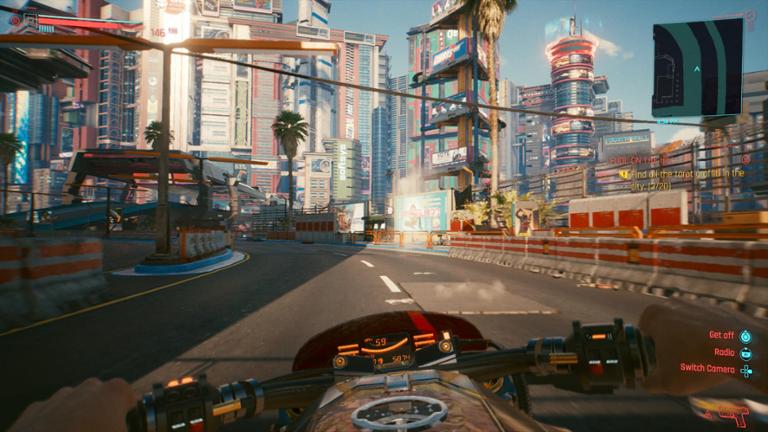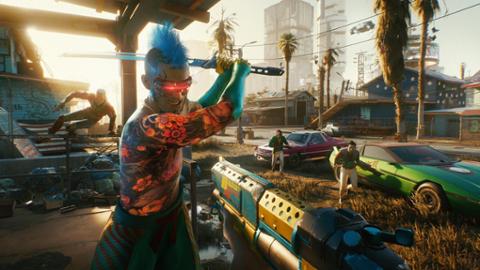For years, game developers have complained about “crunch time,” in which their teams are required to work virtually around the clock for many months to deliver a fully featured game by a certain release date. Companies have routinely pledged to end crunch time, yet developers still complain about overwork.
Last year, for example, reports suggested the CD Projekt Red team assigned to produce “Cyberpunk 2077” (screenshot above) ended up working long nights and weekends at an “exhausting pace” in order to finish the blockbuster game. “Crunch at this scale, and for this duration, casts a shadow over ‘Cyberpunk 2077’— and actively undermines some of the progressive and cautionary themes no doubt present in the game itself,” stated a Polygon article at the time.
Similar reports emerged from Rockstar Games, another huge publisher, when it was pushing to release “Red Dead Redemption 2,” another massive open-world game, back in 2018. Epic, BioWare, and other high-profile studios have faced their own crunch time controversies over the past couple of years.
But do game developers really feel forced to work crazy hours under incredible pressure? GDC’s State of the Game Industry 2021, the latest version of its annual report, presents some intriguing data. Specifically, most game developers seem to have worked a reasonable amount of hours per week over the past 12 months:
GDC surveyed some 3,000 game developers to come up with its results. It’s also worth noting that, while many of those developers had what might be described as “normal” workweeks, a small but noticeable number worked over 56 hours per week on average. And when we look at the maximum hours worked during any particular week over the past year, things get a tad more extreme:
Twenty-four percent of respondents worked more than 66 hours per week, which is pretty crunchy. Nine percent worked more than 81 hours, which is entering serious burnout territory.
But what led developers to work those hours? Some 73 percent said they were personally motivated to do so (i.e., self-pressure), while 14 percent said it was due to management pressure, and 11 percent cited peer pressure as the reason for remaining at their desks. Some 33 percent of respondents didn’t feel that the amount of time they worked was excessive, while 9 percent claimed they had no idea why they put in so many hours.
“Self-imposed: being senior staff means I must lead by example,” one anonymous developer told the survey-takers. “This used to mean commitment but now it’s discipline and ability to balance life and work so passion does not consume rookies. The studio has a strict no-crunch policy and paid extra-time: so I’m being encouraged to work LESS to rest!”
Among small teams, there’s also the excitement of building a great product. Said another anonymous respondent: “Very small team and we were all very committed to the project. Peer pressure might be an accurate way to describe it at times, but we were all somewhat feeding off each other and just pushing as hard as we could.”
Whether you’re an independent developer struggling to build the iOS game of your dreams, or just one of a massive team of technologists trying to put the finishing touches on a huge MMOG, it’s important to take proactive steps to avoid burnout. If you’re part of a team, it’s always worth regular check-ins with your manager to gauge your workload; if you feel like you’ve taken on too much, they can hopefully help you rebalance.
For pretty much everyone, it’s also important to develop good habits such as:
- Get on a regular sleep schedule.
- Take vacations.
- Develop relaxing rituals and practice them on a regular basis.
- Exercise regularly.
- Stop checking your email constantly.
- Integrate breaks into your schedule.
While those might seem like difficult things to accomplish while you’re trying to ship a finished product, even taking a few minutes to walk around the block, or an hour to shut down all of your screens, can prove beneficial to your mental health.



